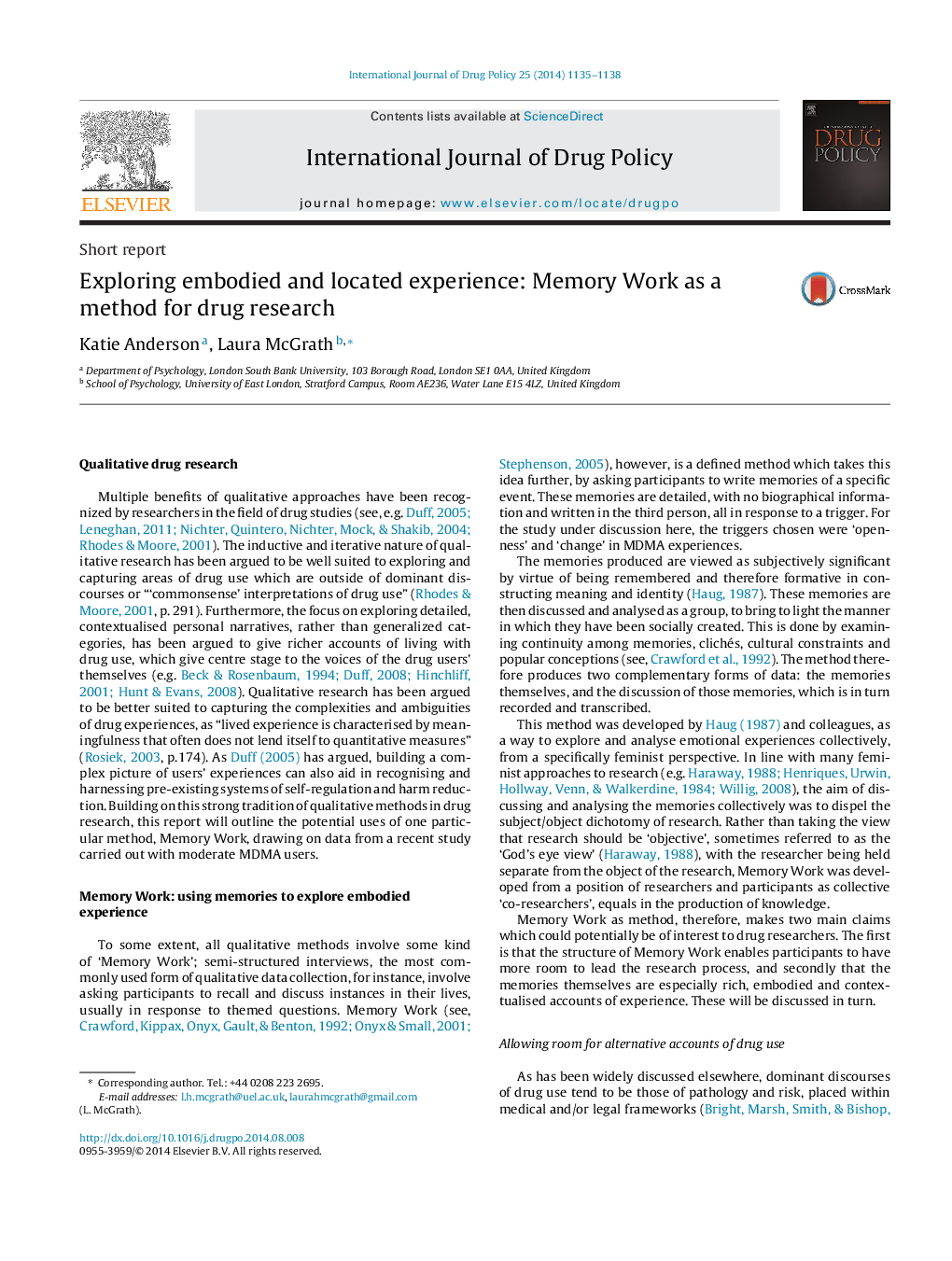| Article ID | Journal | Published Year | Pages | File Type |
|---|---|---|---|---|
| 7513559 | International Journal of Drug Policy | 2014 | 4 Pages |
Abstract
- Memory Work involves the production of specific, detailed memories which are then discussed as a group. The advantages of this method for researching drug experiences are discussed.
- The process is participant-led, as participants write their memories, and take part in the analysis.
- Memories are particularly rich in the detail of embodied, situated experiences.
- The combination of the written memories and participant reflections and sense making in the discussion creates a particularly rich data set.
- Disadvantages include the level of literacy, and commitment to the process, needed by participants.
Related Topics
Health Sciences
Medicine and Dentistry
Psychiatry and Mental Health
Authors
Katie Anderson, Laura McGrath,
